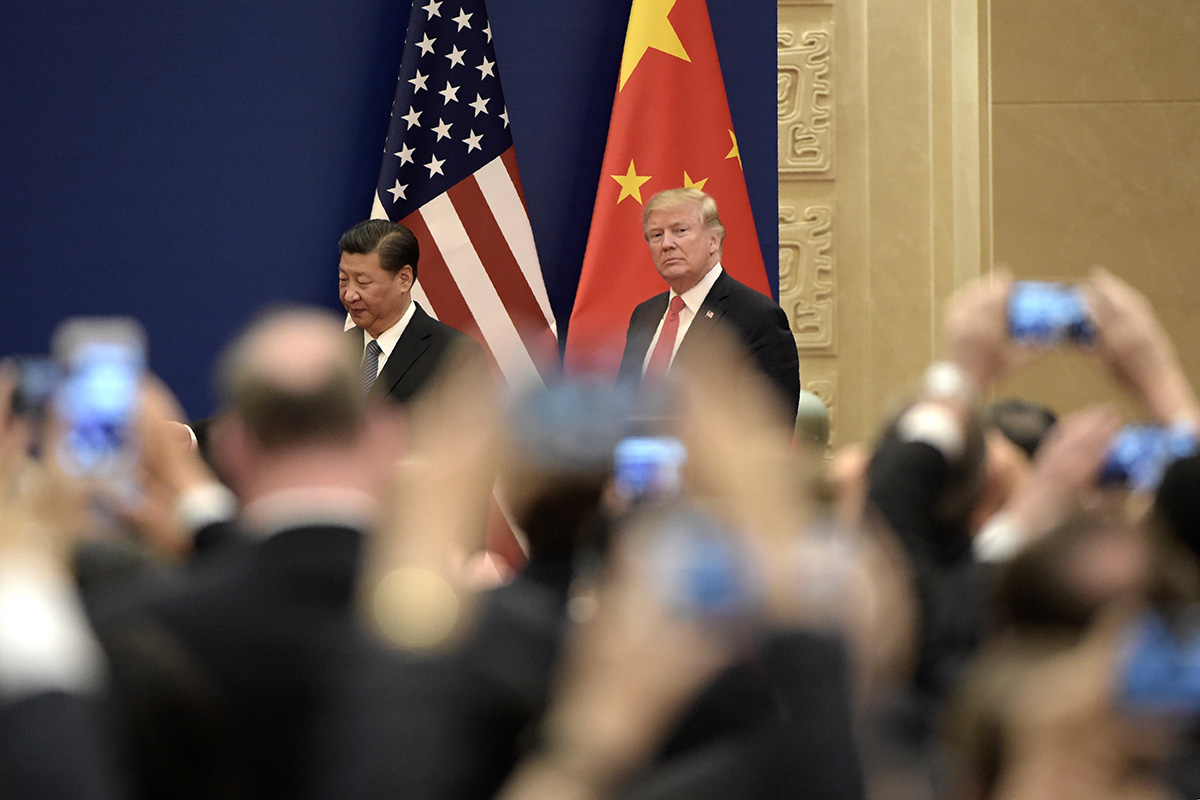US President Donald Trump arrived in Vietnam Friday where he is expected to flesh out his "America First" vision for the future of world commerce, fresh from a visit to fellow superpower China which is pitching itself as the new architect of global free trade.
Trump, who tweeted his arrival shortly after stepping off Air Force One at Danang airport, is likely to press his protectionist doctrine when he addresses CEOs ahead of the Asia Pacific Economic Cooperation (APEC) forum at the Vietnamese resort.
In a day mixing big hitters of politics and business, Trump will share the venue with world leaders including Russia's Vladimir Putin, Japan's Shinzo Abe and China's Xi Jinping.
Xi touches down in Danang later on Friday afternoon and will also deliver a speech, likely to double down on his commitment, delivered at the recent Communist Party Congress, that China is ready and able to step into the role of global free trade leader vacated by America.
China on Friday said it will further open the country's financial markets to foreign firms, a key demand from the US and other global investors who have long complained about the strict limits on access to the giant economy.
Trump arrives fresh from trips to Tokyo, Seoul and Beijing, where he sought to build a consensus against North Korea's nuclear ambitions and repeated his disquiet with "unfair" trade conditions that he says are siphoning off American jobs.
In China he was gushing in his praise of Xi, calling his host "a very special man" in a trip rich with photo opportunities but lacking concrete outcomes on tackling key issues such as North Korea.
As the US retreats behind "economic nationalism", China will take a stride forward, said Ian Bremmer of the political consultancy Eurasia.
Free trade on the rack
The White House ruled out any meeting between Trump and Putin, a potential box office event with Russia accused of interfering in the US election last year that brought the billionaire one-time reality TV star to power.
Trump election campaign aides are under intense legal scrutiny in the US over possible ties to the Kremlin, but Russia denies any chicanery linked to his astonishing political ascent.
The rise of Trump as leader of the world's biggest economy, risks unpicking decades of US-led economic diplomacy that webbed global economies together with free trade and low tariff pacts.
He has pledged to wring a better deal from countries the US has large trade deficits with – including China – and bring jobs back to the hollowed out industrial heartland that voted for him.
But proponents of free trade, including many allies, have looked on aghast as Trump tears up the rule book and anti-globalisation arguments ricochet through the US and Europe.
Trump has already pulled Washington's support from the sprawling 12-nation Trans Pacific Partnership (TPP) trade pact and vowed to renegotiate NAFTA, a trade deal between the US, Canada and Mexico.
On Friday, Asia-Pacific ministers were struggling to salvage the TPP deal, with Canada denying reports that an agreement had been struck among the remaining 11 members to press ahead without the US.
Malaysian premier, Najib Razak, whose country is among the so-called TPP-11 nations, lamented the wider change of "tone" towards globalisation.
"I see the rise of anti-globalisation, I see the rise of more inward looking (nations)... there's a lot of soul-searching we have to do during this APEC," he told a room packed with CEOs on the sidelines of the forum.
The annual APEC summit is one of the largest gatherings on the annual diplomatic calendar, bringing together scores of world leaders and more than 2,000 CEOs.
APEC represents 21 Pacific Rim economies, the equivalent of 60 percent of global GDP and covering nearly three billion people, and has pushed for freer trade since its inception in 1989. – AFP
Recommended stories:
